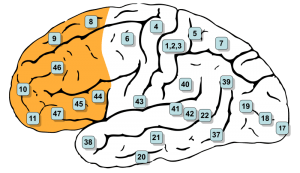
What Leaders Can Learn From Game Design, Part 1: Autonomy
I first thought that my game design background and using brain science to thrive at work had little to do with each other; wow was I wrong! It turns out, leaders have a lot to learn from game designers.
When I left my career in game development to found Happy Brain Science so I could spread the science of happiness, I figured I was leaving my game development background behind. But one of our newsletter subscribers along the way recommended I read the book Glued to Games by Scott Rigby and Richard M. Ryan. Whoever you were (maybe someone in a class at Blizzard Entertainment?), thank you!
Glued to Games connected my worlds; and it can connect your worlds too, if you’ve ever enjoyed a game, and you work with others. Rigby and Ryan lay out a compelling, data-driven case that games are so compelling for so many of us because they do a great job of satisfying core human needs: autonomy, mastery, and relatedness.
Autonomy at first seems straight-forward: don’t micro-manage people; provide choices. But the research suggests delivering autonomy–at work or in a game–is more complex.
First of all, not all choices are created equally. Research suggests that, in some situations, the more choices you give someone, the less happy they are with the choice they make. (For scientific sources, please see “Choose From Three” in this list of scientific sources for Choose Happiness @ Work.) So limiting choices may result in more happiness for the chooser; you might give people you work with three, two, or even just one option.
You might be thinking “Wait, one option doesn’t deliver
To learn more about mastery and relatedness, and how game designers deliver those and you can too, please stay tuned. Or play Choose Happiness @ Work to experience mastery and relatedness, while learning about both.
As always, we would love to hear from you! Let us know your thoughts by replying to this email, leaving a comment on our blog or Facebook page, or by tweeting to @ScottCrab.
Do you get enough autonomy at work? What happens to your motivation when you get it, or you don’t? How do you deliver autonomy to your colleagues at work?
– Scott Crabtree and the Happy Brain Science Team